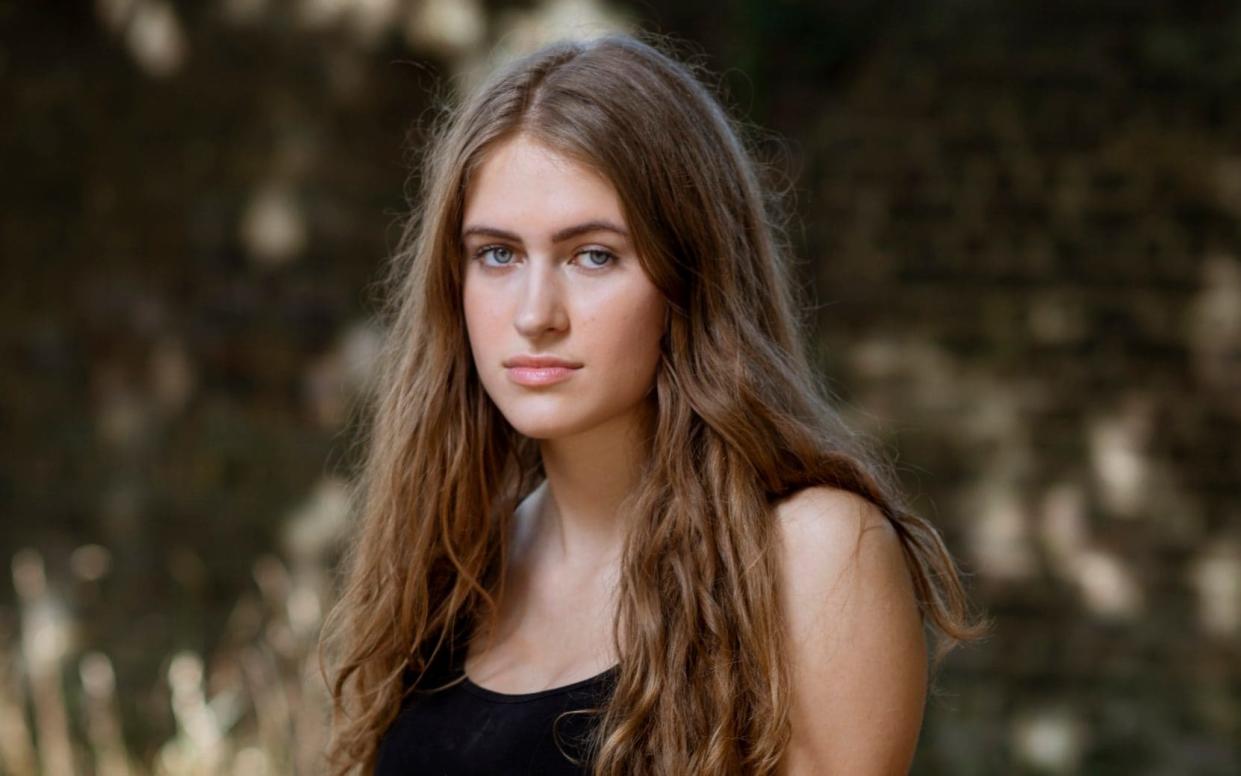What will become of the Class of 2020 on the most chaotic A-level results day of a generation?

It will be a sweltering but drizzly morning on Thursday, when Laura Fordos’s mother will drive her the 20-minute journey to school to pick up her all-important envelope. Her state sixth-form in Twickenham, south-west London, has emailed her with a short timeslot to enter the school hall (social distancing means only a handful are allowed in at one time). She will not be able to speak to any of her teachers, and barely any of her classmates. It is a far cry from the joyous day of celebratory hugs and selfies that she has imagined since the beginning of school.
But Fordos, 18, has long accepted that there will be nothing normal about Thursday, when she and almost half a million others will receive their A-level results in the midst of the biggest shake-up to the grading system in a generation.
She needs AAB grades to meet her offer for Law at Leeds University – a feat she was confident she would pull off until March, when she found out that summer exams, for the first time in history, were cancelled. She was sitting in her school’s study room making revision notes on The Great Gatsby when she heard. “I worked really hard to make everyone proud,” she says. “My friends are academic and we enjoy studying – we wanted to do our exams because it felt like that would finish this chapter of our lives. My mum is definitely worried; she understands that I find it quite unfair. She said she wishes I was born a year earlier or later.”
This year, in lieu of exams, teachers have been asked to submit grade predictions for each pupil, based on a vague mishmash of GCSE results, mock exams, classwork and “any other records”. Teachers have also submitted a list of each child in their class, ranked by ability. Those predictions are then fed into a mysterious “process of standardisation” designed by Ofqual, England’s exam regulator, which takes into account the child’s ranking, national outcomes, and – most controversially of all – the school’s prior attainment.
Sally Collier, Ofqual’s chief executive, has assured pupils their grades will “look exactly the same as in previous years, and they will have equal status with universities and employers”. But those words inspired little confidence in John Nield, a former Principal Examiner for AQA, Britain’s top exam board. He envisions a “car crash” on Thursday, when pupils will discover that as many as 30 per cent of results have been downgraded. “These kids have gone through hell,” he says. “I’m a retired teacher, I love teachers to bits, but if you’re presented with a situation where you think your students are going to suffer, you’re going to give them an inflated grade.”
The most pernicious aspect, he says, is that by judging pupils against their school’s history, and against their contribution in class, the system will penalise those hidden gems who surprise their teachers on results day by pulling a string of A*s out of the bag – the Just William types whose unpolished conduct in the classroom hides their intelligence. “I worry that boys will be particularly affected. They tend to do better in exams than expected, and some boys are a bit of a pain in the classroom, so tend to be underestimated by their teachers. White working-class boys and BAME students are going to suffer.”
It is a fear shared by James Turner, CEO of the Sutton Trust education charity: “Predicted grades are often wrong when compared to grades kids actually get when they sit exams. We’re particularly worried about high-performing but low-income students, who often have their grades under-predicted. If you’re a teacher at a challenging school, it’s hard to predict at the higher end – what does an A* look like? There are certain unconscious expectations on what poorer children might be able to achieve.”
Jess Evans, the daughter of a Stockport bus driver, hopes to be the first member of her family to attend a top university if she meets her A*AA offer for Cambridge. She attends a private school in Manchester on a scholarship; it is high-achieving but small, with fewer than 30 in each year, and she doesn’t know how that will factor in. She is worried that even if she does make her offer, she will suffer from imposter syndrome. “I know in the rational parts of my brain that we do deserve these grades, but at the same time if you don’t sit the exam, there’s always that bit of doubt.”
Her leaving prom and girls' holiday to Croatia both had to be cancelled - instead, one of the activities that got her through summer was her online participation in the National Citizen Service, a youth programme for 15 to 17-year-olds.

For a preview of the chaos that might lie in store, we need only look to Tuesday’s Highers fiasco in Scotland, when it was revealed that exams body SQA had downgraded a quarter of results from the teacher’s original prediction. Pupils from deprived homes saw their marks reduced by an average of 15 per cent; for the best-off pupils, it was just seven per cent. A gloomy-faced Nicola Sturgeon insisted at a press conference that if teachers’ predictions had gone through unfettered, then the pass rate would have been substantially higher than ever before, presenting a “credibility” issue.
The First Minister stressed that every Scottish pupil has the opportunity to appeal – a privilege not granted to youngsters in England, Wales, or Northern Ireland, who can only appeal on narrow technical grounds (like an administrative error). Under no condition can pupils challenge the original grade predicted by their teacher – Ofqual says that any such appeal would have to be decided by “someone better placed than the student’s teacher ... we do not believe there is such a person.” In England, since a U-turn this week, schools can also appeal on a child's behalf if they can prove that a major change in the school’s circumstances makes this year’s cohort very different from the last.
Lori Lawson, 17, previously received As in most exams but ended up with BBCD on Tuesday, putting her place at Edinburgh Napier University in question. She believes she was penalised because her state school in North Lanarkshire has a history of poor results. Her mother, Lorna, remembers receiving her text message that morning. “She said: ‘I’ve done rubbish, Mum’. I was panicking, wondering how the heck she got a D. I called the school and said: ‘I’m sorry, I’m not having this.’ All I can do is fight her corner.”
SQA insisted they have “maintained the integrity and credibility of our qualifications system [...] through judicious moderation of grades”, pointing out that the most disadvantaged Scottish young people achieved their best results in four years.
Officials are most concerned about the impact on poor students, but the cruel hand of standardisation will affect those from affluent backgrounds, too. Matthias Lavergne-Pouillaude, who attends a private school in Kent, was predicted a 38 in his International Baccalaureate (an equivalent for A-levels popular with independent schools), but instead received a 35 last month, scuppering his offer from Bristol University. “Human sense would have worked this out,” says his mother, Constance. “You can’t recreate common sense with a computer. I work in computing so I know.”
An International Baccalaureate spokesman assured students and parents that results were “not left to artificial intelligence. We relied on student coursework, [...] predicted grades, [...] and the context of each school.”
The teenagers are all keenly aware of their historical misfortune of being “born in the wrong year”, as some of them put it – but Nield worries that exams will “probably” be assessed differently next year as well, if pupils don’t receive a full year of education. Ellie Overfield, a Year 12 student at a Worcester private school who hopes to study at Oxford, says her schoolmates are worried that competition for university places will be extra tough in 2021 because they will be forced to compete with those from this year’s cohort who take a gap year.
Turner and others implore parents not to get carried away with worry, because universities will be more lenient than normal this year. There is no reason, they say, that a child’s future needs to be decided by one rainy morning in August.
Are you concerned about A-level results? Do you expect the new system to provide fair results? Share your thoughts on A-level exams being interrupted in the comments section below

 Yahoo News
Yahoo News 
